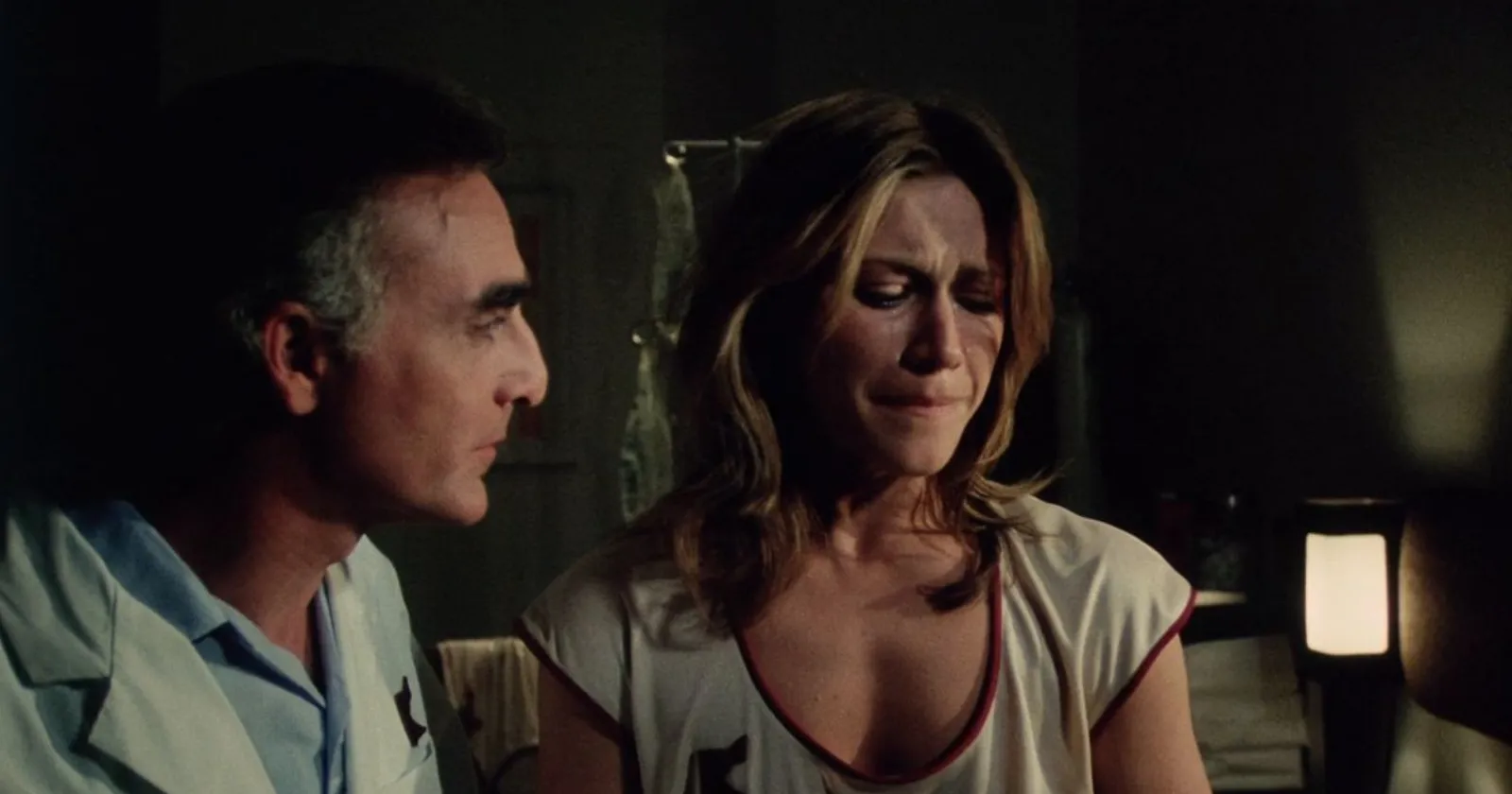
David Cronenberg’s Rabid (1977) builds on the raw, squirm-inducing energy of his debut feature Shivers, but elevates it with a bigger story, clearer characters, and a more polished sense of direction. As a sophomore effort, Rabid still feels like an early work from a filmmaker who would go on to deliver more refined and layered horrors in films like The Fly, Scanners, Videodrome, and Dead Ringers, but there’s an unmistakable step forward in craft here—especially in how Cronenberg handles tone, pacing, and sheer body-horror spectacle.
At the center of Rabid is Rose, played by adult movie icon Marilyn Chambers in her first performance as a leading actress in a mainstream film. After a motorcycle accident leaves her severely injured, she’s treated with an experimental skin graft by Dr. Dan Keloid (Howard Ryshpan). But something goes wrong—or maybe exactly as intended—and Rose develops a bizarre new appendage, a phallic stinger tucked away in her armpit that she uses to feed on human blood. Her victims don’t just die—they become rabid, infected carriers of a violent plague that spreads rapidly throughout Montreal.
Rabid shares a lot of thematic and structural DNA with Shivers, particularly in its depiction of disease as both literal contagion and metaphor for societal decay. But while Shivers confined its outbreak to the walls of a high-rise apartment complex, Rabid expands the chaos to a city-wide epidemic, and in doing so, gives itself more space to explore the horror of breakdown—of bodies, of public systems, and of identity. The fear here is both intimate and systemic, an early sign of Cronenberg’s future interest in how external technologies and interventions wreak havoc on the internal self.
The practical effects are cranked up from Shivers, delivering more convincing gore and viscerally upsetting moments, and Cronenberg’s camera feels more deliberate this time around. The direction is tighter, the performances sharper, and the script more detailed—making for a more cohesive experience even if the film still carries that lo-fi ’70s exploitation grime.
Despite those improvements, Rabid still falls short of being one of Cronenberg’s best. It doesn’t quite have the striking imagery or iconic sequences of his later work, and its pacing, while stronger than Shivers, still drags in stretches. The ideas are more ambitious, but they’re not yet as thematically rich or philosophically provocative as the ones he would explore in The Brood or Naked Lunch. Still, Rabid is fascinating to watch in retrospect—it’s Cronenberg beginning to spread his wings, scaling up his vision while staying rooted in the core elements of body horror and disease that would become his signature.
READ MORE MOVIE REVIEWS: Eraserhead, Star Trek: The Motion Picture, A Woman Under the Influence
As part of a double-feature with Shivers, it offers a glimpse at a director refining his obsessions: sex, technology, infection, and transformation. It’s messy, nasty, and bold—and for Cronenberg fans, essential viewing.
Score: 6/10
Rabid (1977)
- Cast: Marilyn Chambers, Terri Hanauer, Frank Moore, Joe Silver, Howard Ryshpan
- Director: David Cronenberg
- Genre: Horror, Science Fiction
- Runtime: 91 minutes
- Rated: R
- Release Date: April 8, 1977
- Movies Like Rabid: Heretic, The Substance, Midsommar